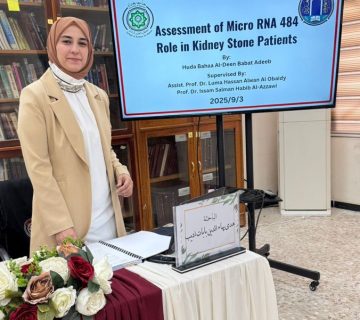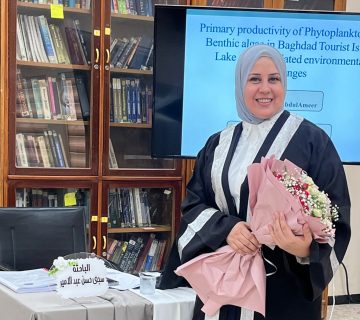The master’s thesis, “Synthesis of 2-Ethyl Hexyl Acrylate and Isopropyl Methacrylamide Copolymers and Evaluation as Additives for Lubricating Oil,” was the topic of discussion at the College of Science for Girls at the University of Baghdad.
Student: Ghofran Qasem Siwan
The thesis’s goal is to create polymeric additives that will improve the viscosity of lubricating oils, make them more stable at high temperatures, and reduce wear. We will achieve this by creating and studying new copolymers based on 2-ethyl hexyl acrylate and isopropyl methacrylamide.
The study was done at the University of Baghdad’s College of Science for Women’s Chemistry Department by the Middle Refineries Company in the Dora Refinery. They made the monomer 2-ethyl hexyl acrylate by combining 2-ethyl hexanol and acrylic acid in an esterification reaction with sulfuric acid acting as a catalyst. The resulting copolymers were characterized using Fourier-transform infrared spectroscopy (FTIR) and proton nuclear magnetic resonance (1HNMR) techniques. We prepared high-conversion rate copolymers from a mixture of 2-ethyl hexyl acrylate and isopropyl methacrylamide, using benzoyl peroxide as an initiator. We evaluated their performance as lubricating oil additives to enhance viscosity properties, reduce pour point, and decrease corrosion. The copolymers proved to be effective viscosity improvers, pour point depressants, and anti-corrosion agents.
The letter makes the following key recommendations:
1.Using new acrylate monomers and studying different combinations of 2-ethyl hexyl acrylate and isopropyl methacrylamide copolymers. We should also use green additives, such as glyceryl copolymers.
- The letter recommends preparing different types of copolymers and investigating their concentration effects as additives on the properties of the lubricating oil, such as solubility, viscosity, and pour point. The student achieved an excellent grade.










